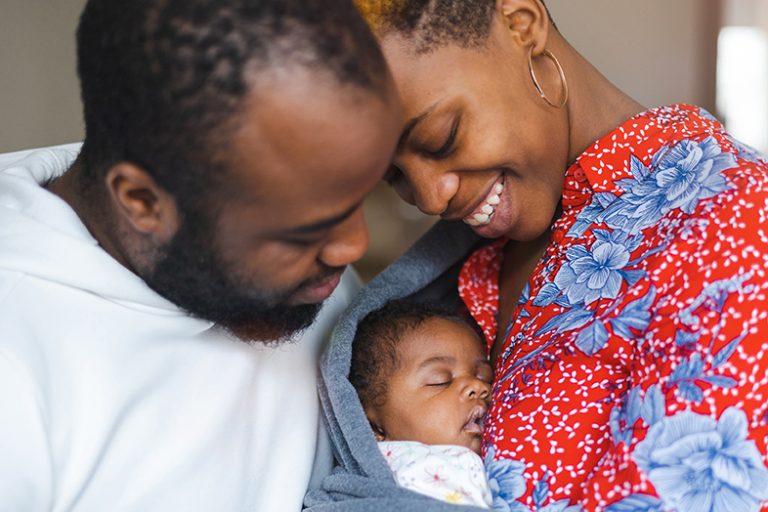Early Childhood Support Clinic Pioneers Integrated Care for Families
The Early Childhood Support Clinic (ECSC) is a newly created space for families that transforms lives by pioneering an integrated care approach for children from birth to age 5. The clinic is a collaboration between the Wayne State University School of Social Work, Wayne Pediatrics and the Merrill Palmer Skillman Institute, and has been gradually opening over the past year.
Unlike typical pediatric clinics, which often focus solely on the physical health of the young child, the ECSC adopts a holistic perspective, emphasizing the interplay between mental health and family dynamics.
“The way young children learn and grow and develop in healthy ways is through healthy relationships with their parents and caretakers,” says Carolyn Dayton, Ph.D., associate director of the Infant Mental Health Program of the Merrill Palmer Skillman Institute for Child & Family Development at Wayne State University. “What that means is that to have healthy young children, you have to have healthy parents and caretakers.”
Wayne State University was first in the country to offer an Infant Mental Health Dual Title Degree. The program trains research-informed infant mental health (IMH) clinicians — and provides unique internal IMH expertise.
Parents who are experiencing perinatal mood and anxiety disorders can receive support at the ECSC — as well as parents who are struggling to care for babies and young children who have a challenging temperament.
“You have to serve the whole family and pay attention to those early relationships and how the parents are doing and how their kids are doing,” Dayton explains, adding that early intervention can make a big difference for families.
An integrated model that supports children and parents
By putting IMH clinicians right where parents are — children visit their pediatrician nine times in the first 18 months of life — the ECSC provides an integrated model that provides pediatric medical care plus specialized mental health support.
Additionally, the integrated care model means these disciplines can learn from each other.
“We’re learning about medical issues that may well be affecting the relationship quality between the parent and baby, like early infant reflux when a mom says her baby cries all the time and won’t sleep,” says Dayton. Through a social work or psychology lens, the behaviors could point to loss or trauma. “But the pediatrician might say, you know what? I think it’s reflux.”
Conversely, a trauma-informed approach from IMH specialists could help medical staff recognize past trauma that is affecting a father’s ability to sensitively care for his baby, for instance. Rather than asking a busy parent to go to a different location to see a specialist on a different day, “we have the chance to do this all in the same place. It’s a one-stop-shop for the family,” Dayton says.
Seeking a sustainable billing model that can be replicated
As the ECSC works its way to full capacity and support for every family that visits the practice, Dayton and her colleagues are also working to create a billing model — a challenge in a model that provides two-generation services. They’re working to pull in national infant mental health organization Zero to Three, which has helped states like California develop a billing model. Michigan’s laws are different enough that simply applying another state’s model won’t work, Dayton says.
“You need to be providing services and having funding to do that, while you also have funding to bring in the experts to help you figure out what the billing model looks like. And once we figure this out, please, everyone in Michigan, take (the model) and do the same thing,” Dayton says.
“Every kid from birth to 5 and their family should have this integrated care system,” she adds. “If you can just give a little bit of support, we can forestall or cut off the possibility of later problems.”
And, Detroit is the perfect place to launch this program, she says, thanks in part to the personal commitment in IMH by Herman Gray, M.D., chair of the Wayne State University Department of Pediatrics and his wife, Shirley Mann Gray, MSW, director of community outreach with the Detroit Health Department.
“He has a soft spot in his heart for social work, for infant mental health — and the importance of social determinants of health on early development and the stressors parents are facing,” she says.
“We need to support parents in their efforts to raise happy, healthy children,” Dayton says. “All parents want to do a good job. Almost always when parents are struggling, it’s because they’re dealing with other stressors in their lives. There’s no reason not to provide these kinds of integrated care services for young children and their families. This can make a huge difference.”
Learn more about the Early Childhood Support Clinic at www.wayne.edu.

